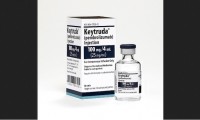-
AI may help identify potential gonorrhea vaccine proteins
- Source: drugdu
- 183
- November 2, 2023
-
Shorla acquires methotrexate solution from Therakind in the US
- Source: drugdu
- 105
- November 2, 2023
-
AstraZeneca studies highlight burden of COVID-19 for immunocompromised
- Source: drugdu
- 192
- October 20, 2023
-
FDA approves UCB’s inflammatory disease drug Bimzelx for plaque psoriasis
- Source: drugdu
- 138
- October 20, 2023
-
Merck’s Keytruda wins coveted FDA nod around surgery for early lung cancer—with a surprise
- Source: drugdu
- 174
- October 19, 2023
-
Bristol Myers Squibb’s Opdivo approved by FDA for expanded melanoma use
- Source: drugdu
- 118
- October 18, 2023
-
Merck’s Keytruda receives approval greenlight from EU CHMP
- Source: drugdu
- 175
- October 18, 2023
-
Almirall and EpimAb Biotherapeutics enter $210m bispecific antibody partnership
- Source: drugdu
- 134
- October 17, 2023
-
Newly discovered synthetic adjuvant materials could make vaccines more accessible, sustainable
- Source: drugdu
- 115
- October 16, 2023
-
Almirall and EpimAb partner to develop bispecific antibody therapies
- Source: drugdu
- 220
- October 16, 2023
your submission has already been received.
OK
Subscribe
Please enter a valid Email address!
Submit
The most relevant industry news & insight will be sent to you every two weeks.













